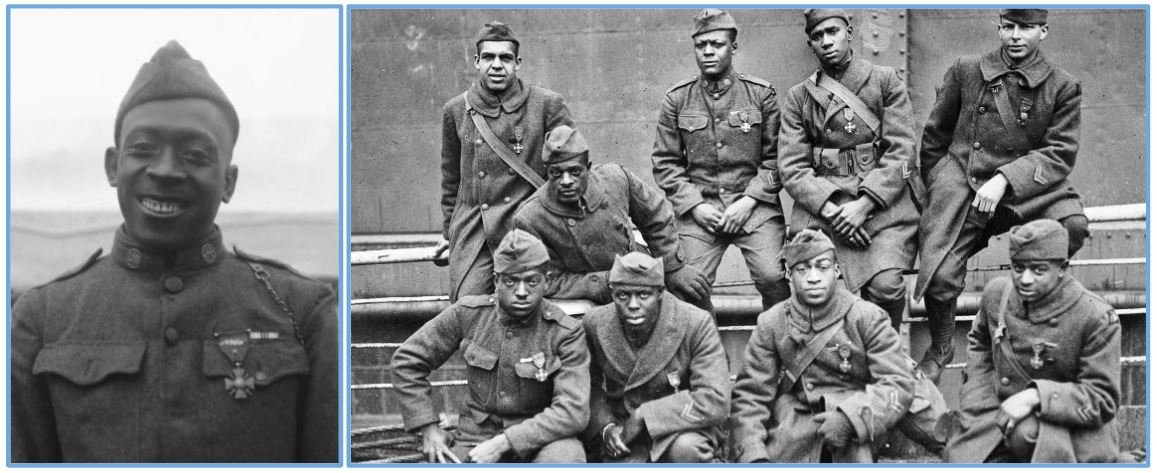TOPIC 7.5 World War 1
Black Excellence & WW1: Celebrated Abroad, Feared at Home
KC-7.3.II.A After initial neutrality in World War I, the nation entered the conflict… in response to Woodrow Wilson’s call for the defense of humanitarian and democratic principles.
Objective:
1. Students will be able to explain the heroic deeds of Henry Johnson and the “Harlem Hellfighters”
2. Students will critically analyze the American military and federal government's treatment of Black soldiers
3. Students will evaluate the extent to which World War 1 caused the Civil Rights movements of the 50s and 60s
ThIS key concept in an Antiracist classroom:
“Will someone tell us just how long Mr. Wilson has been a convert to TRUE DEMOCRACY?” - Baltimore’s Black Press: Afro-American, 1917
“We return. We return from fighting. We return fighting. Make way for Democracy! We saved it in France, and by the Great Jehovah, we will save it in the United States of America, or know the reason why. - W.E.B. Du Bois, 1918
“Woodrow Wilson opened a big can of worms on the night of April 2nd, 1917…African Americans seized upon the blatant hypocrisy of Wilson’s pledge and appropriated democracy as a rhetorical and ideological weapon for the cause of racial equality and individual justice.” - Historian, Dr. Chad Williams
This key concept provides an important lesson about American racist mythology. Racism is not actually about an incorrect belief. At its core, racism is about power. Students will see how Black excellence on the battlefield terrified the American military and federal government. The establishment knew deep down, if given a chance, Black soldiers would demonstrate heroics. Their racism was about the power of sustaining white supremacy. Therefore, the main goal of racism was to prevent Black Americans from opportunities that would prove that the racist mythology (on which many leaders based their power and status) was garbage.
Notes
I love this lesson for the seeds it plants about the “Long Civil Rights Movement.” Rosa Parks didn’t just “get tired one day.” She was part of a sustained strategy that was directed by leaders who had served in World War 1. This lesson will help students make connections across the curriculum.
This lesson goes best after students have already learned about Woodrow Wilson’s call to arms in April of 1917.

